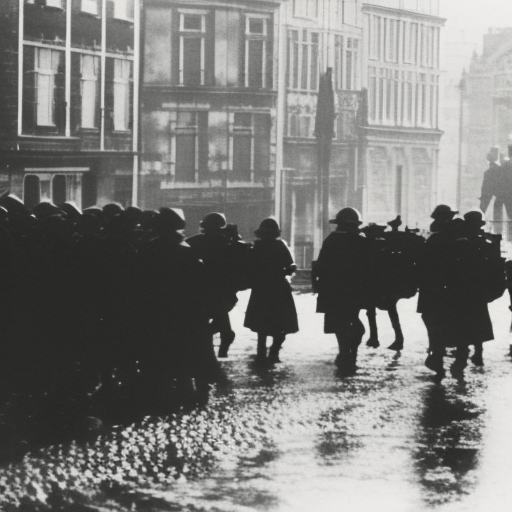Battle of Leuven: The Destruction of a Belgian City
The Battle of Leuven, also known as the Sack of Leuven, was a significant event that took place during World War I. It occurred in the city of Leuven, Belgium, on August 25, 1914. The battle resulted in the complete destruction of the city and the loss of countless lives and cultural treasures.
The Context:
At the outbreak of World War I, Belgium declared its neutrality, but this did not deter the advancing German forces. The German army invaded Belgium in an attempt to quickly defeat the Belgian army and gain control of the country. Leuven, a historic city with a renowned university, became a strategic target due to its location on the road to Brussels.
The Battle:
On August 25, 1914, German troops entered Leuven. The Belgian army, outnumbered and outgunned, put up a valiant defense but was eventually forced to retreat. As the German army took control of the city, chaos ensued. German soldiers, angered by resistance from Belgian civilians, began looting and burning buildings.
The Destruction:
The destruction of Leuven was devastating. The German troops set fire to numerous buildings, including the historic library of the University of Leuven, which housed a vast collection of priceless manuscripts and books. The flames engulfed the city, reducing it to ashes. The destruction of Leuven was not only a loss for Belgium but also a blow to European cultural heritage.
The Aftermath:
The Battle of Leuven and the subsequent destruction of the city had a profound impact on Belgium and the international community. The event served as a rallying cry for the Allies and further galvanized public opinion against the German invasion. The destruction of the library of the University of Leuven was seen as an attack on knowledge and culture.
Reconstruction and Remembrance:
After the war, efforts were made to rebuild Leuven. The city was reconstructed, and the University of Leuven was reestablished. The library, however, could never be fully restored to its former glory. The Battle of Leuven continues to be remembered as a tragic event in Belgian history and a symbol of the destruction caused by war.
Legacy:
The Battle of Leuven and the destruction of the city had a lasting impact on the laws of war. The event contributed to the development of international conventions and treaties that sought to protect cultural heritage during armed conflicts. The destruction of Leuven highlighted the need for safeguarding historical sites and treasures, leading to the establishment of organizations such as the International Committee of the Blue Shield.
In conclusion, the Battle of Leuven was a devastating event that resulted in the complete destruction of the city and the loss of numerous lives and cultural treasures. The German invasion of Belgium during World War I and the subsequent destruction of Leuven served as a rallying cry for the Allies and had a profound impact on public opinion. The event also led to the development of international laws and conventions aimed at protecting cultural heritage during times of war. The Battle of Leuven stands as a somber reminder of the destruction caused by armed conflicts and the importance of preserving our shared history.












